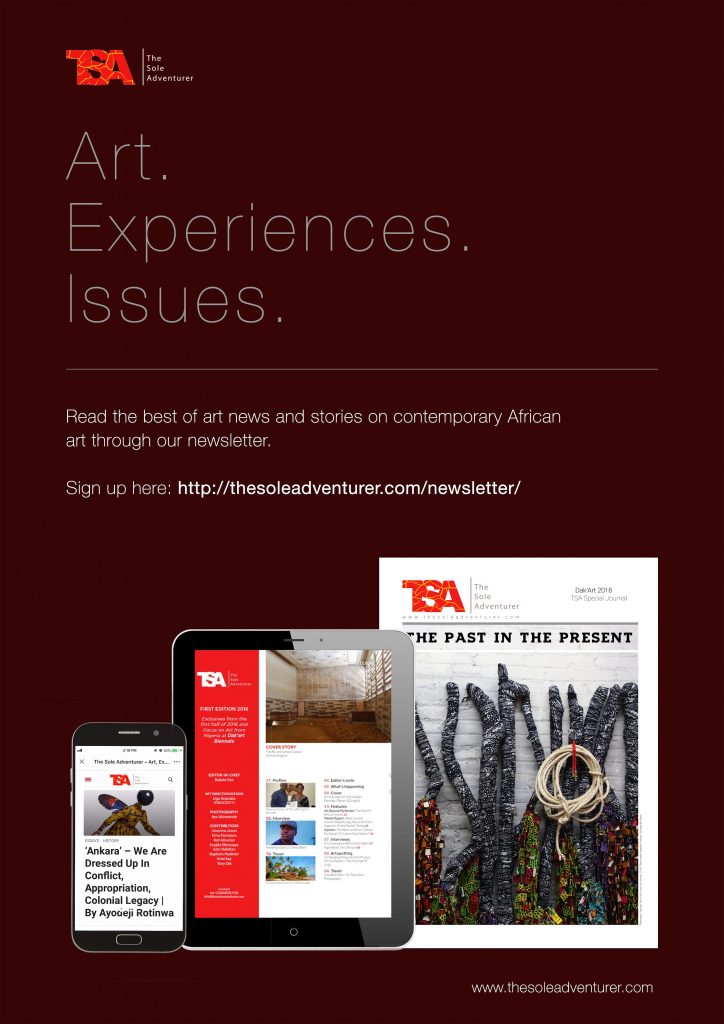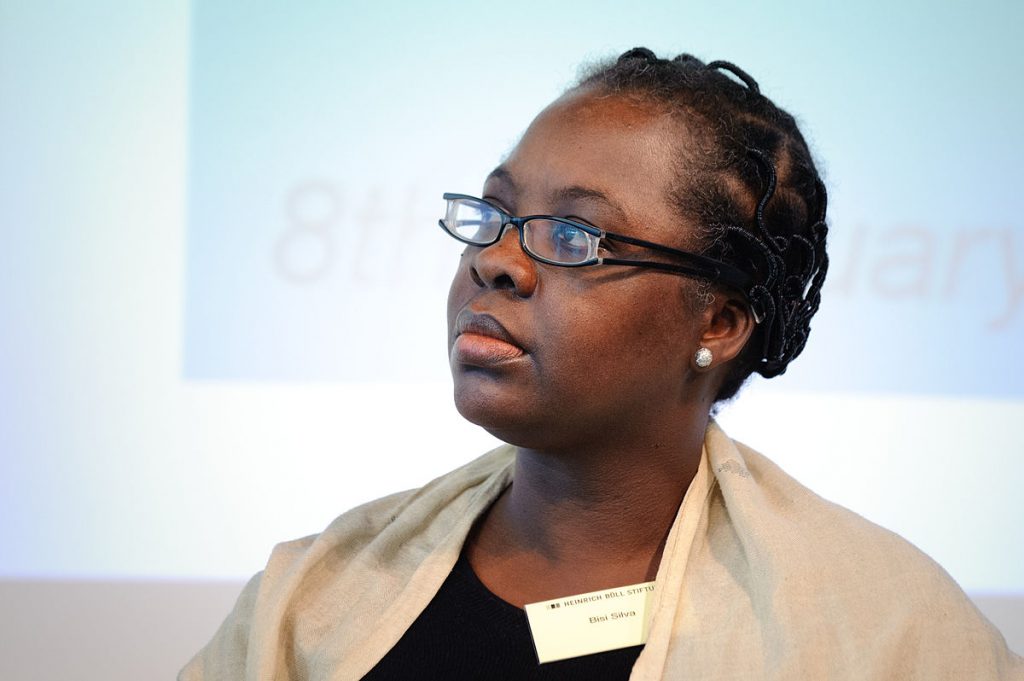In the summer exhibition ‘Globalisto: A Philosophy in Flux’, currently showing at the Musée d’Art Moderne et Contemporain de Saint-Étienne Métropole in France, the curator, Mo Laudi (also known by his South African name of Ntshepe Tsekere Bopape), proposes the pan-African idealogy as a new vision for a disillusioned world. It is not the first exhibition aiming to nudge global thinking toward African knowledge systems and pan-African ideals of collectiveness and togetherness.
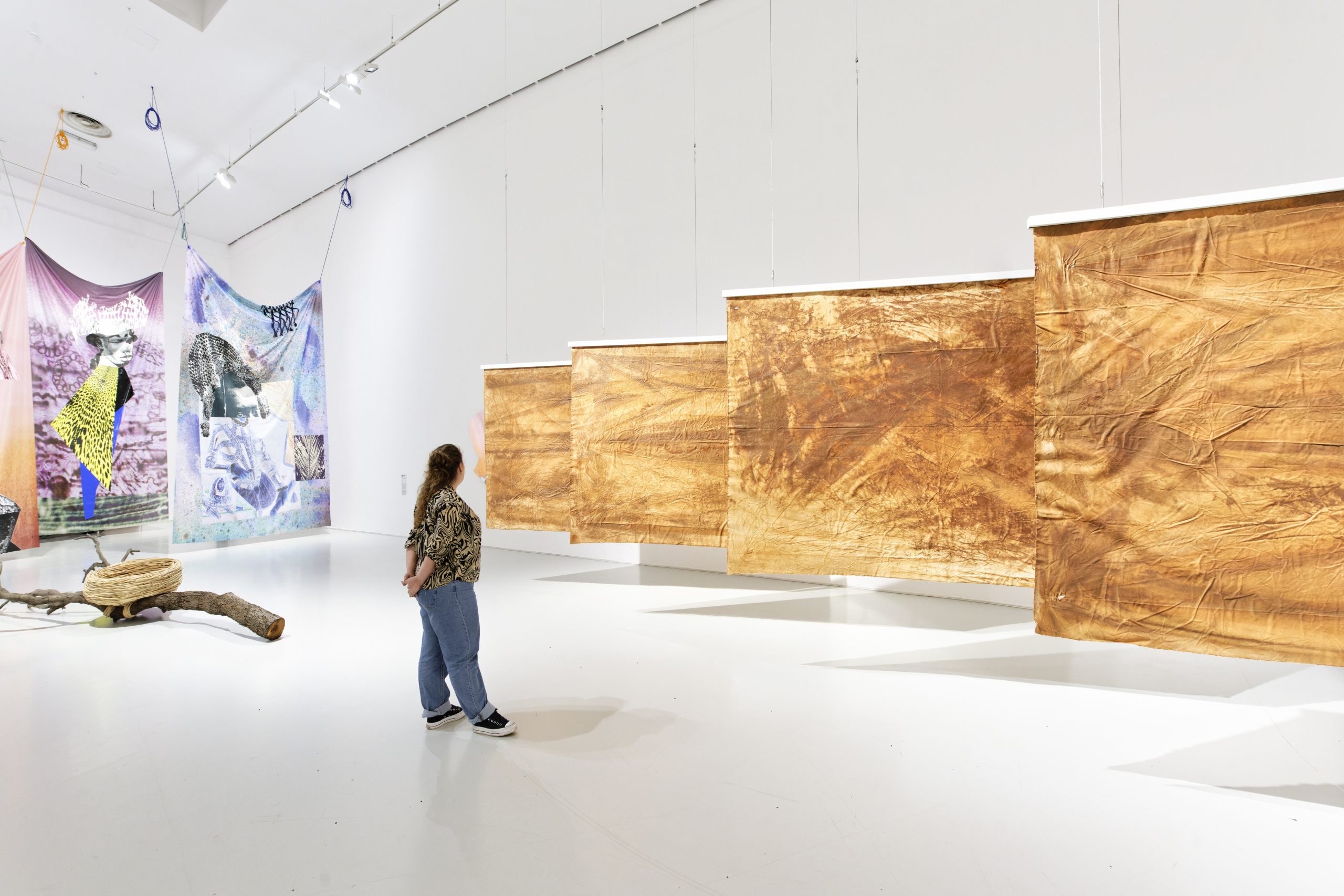
The seed of promoting pan-African ideals as a global philosophy seems to have been planted at the end of the last century. In 1996, two years after the Seventh Pan African Congress in Uganda, Horace Campbell wrote in the African Journal of Political Science about the three tasks of the pan-African movement in the 21st century.1 One could summarise the third assignment as harnessing the movement’s philosophy of promoting collective efforts and spirituality and dignity for all as a guide “to make decisive impact on humanity in the 21st century.” Campbell wrote, “Western European narratives of both the modern and post modern variants devalued the spiritual dimension of humanity with an artificial distinction between thought and matter, between the material and the spiritual. One of the principal challenges of the Pan African movement is “to offer spiritual leadership to a world corrupted by worship of market forces.”
Twenty-eight years after the congress, the pan-African attitude is still being offered to the world. In the curatorial text of ‘Globalisto: A Philosophy in Flux’, Mo Laudi wrote: “The Globalisto philosophy is a call to radical hospitality, openness to unlearn, and the idea of a borderless world…How can we look at the world from a pan-African perspective in order to deconstruct stereotypes and invent an alternative vision? How can we change the narrative by proposing transformation, inclusion and gratitude? Rather than cancel culture, how can we create a “counsel culture”?” Additionally, he connects his ideas of a Globalisto philosophy to “the humanistic principles of Botho which are based on the South African culture of respect.”
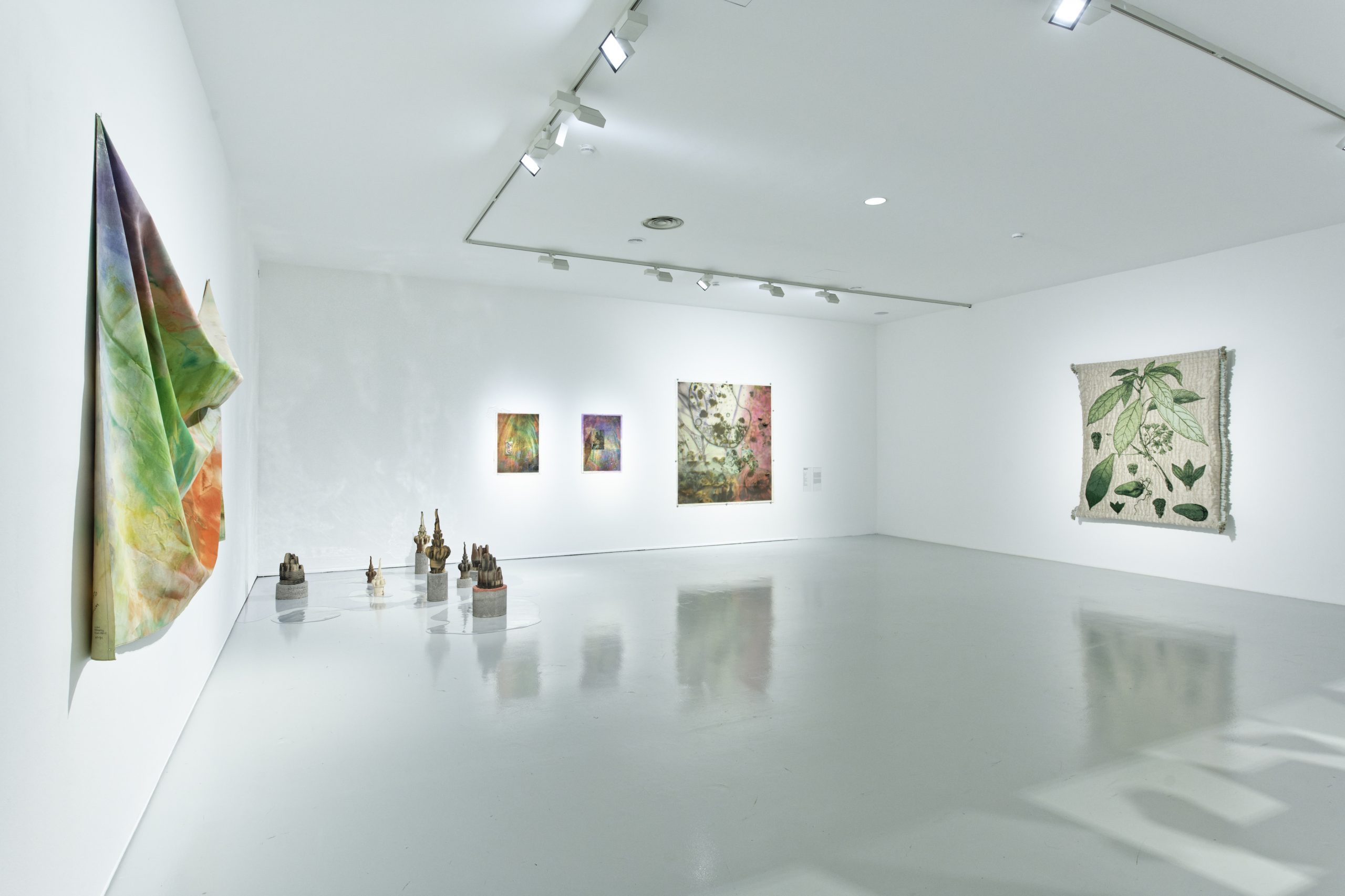
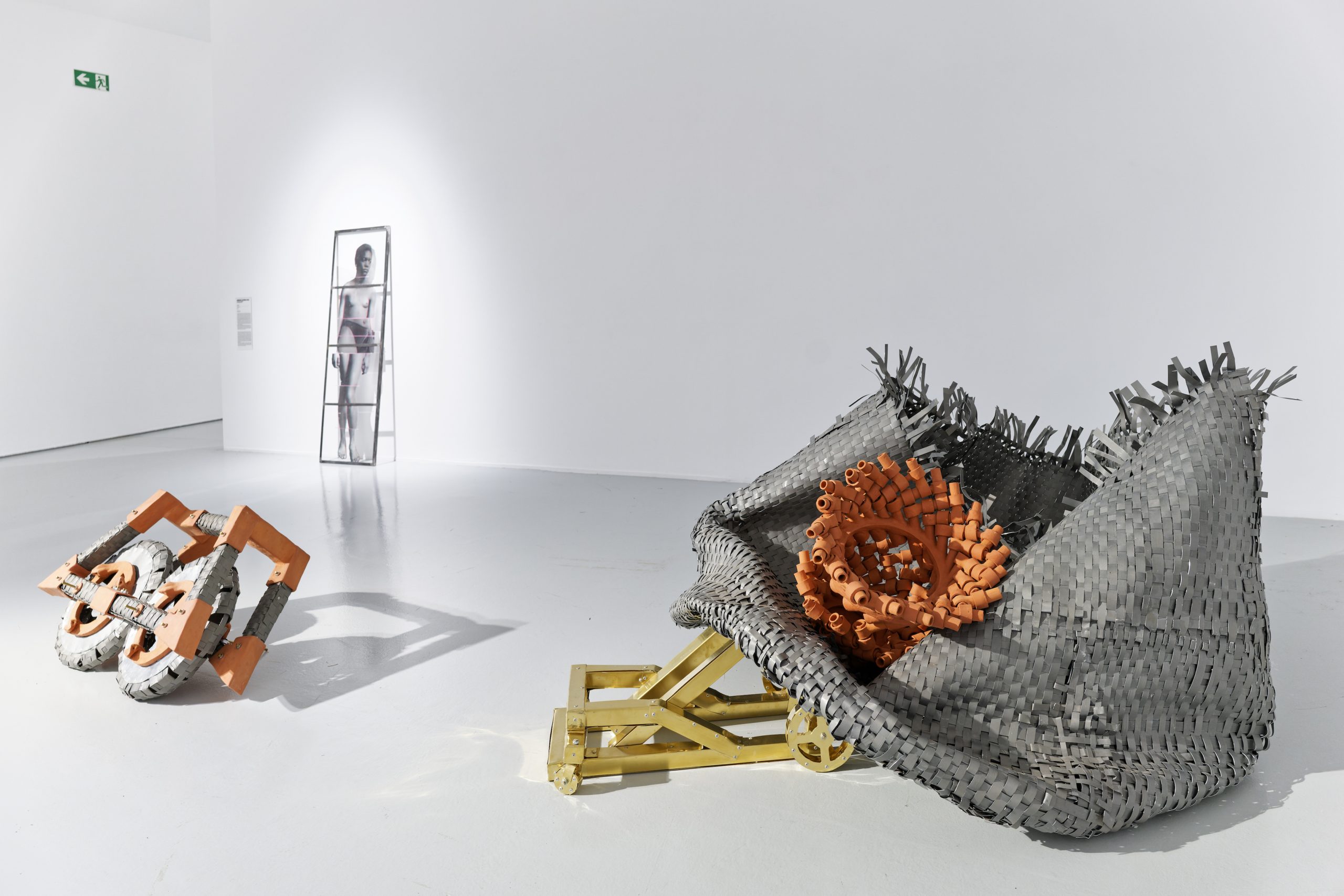
While Mo Laudi sets his call for a new vision against the backdrop of the reoccurring discussions about decolonisation, at the time, Campbell was focused on Western principles inspired by “the crude philosophical traditions of materialism of Europe… greed, corruption and the worse forms of individualism,” that had spread further than Europe and that even persists today, even though neo-liberal market thinking is not as strong now as it was in the 1990s. In light of this, can the pan-African imagination in our time indeed be an alternative and reshape humanity while further taking down the borders of colonial domination?
Globalisto features a stellar lineup of nineteen artists of different generations – from or living in Cameroon, Egypt, Gabon, Malawi, Mozambique, Nigeria, South Africa, Tanzania, Europe, the Caribbean, or the United States – interconnecting Africa and its diasporas. Their work questions the status quo of the current modality and critiques power systems, biopolitics and multidimensional exploitation of resources.
Looking at the works featured in the exhibition, the curator and organisers seem to at least attempt to reawaken the pan-African vision culturally and thus hope to introduce it to a wider discourse of a range of common concerns in the world today.
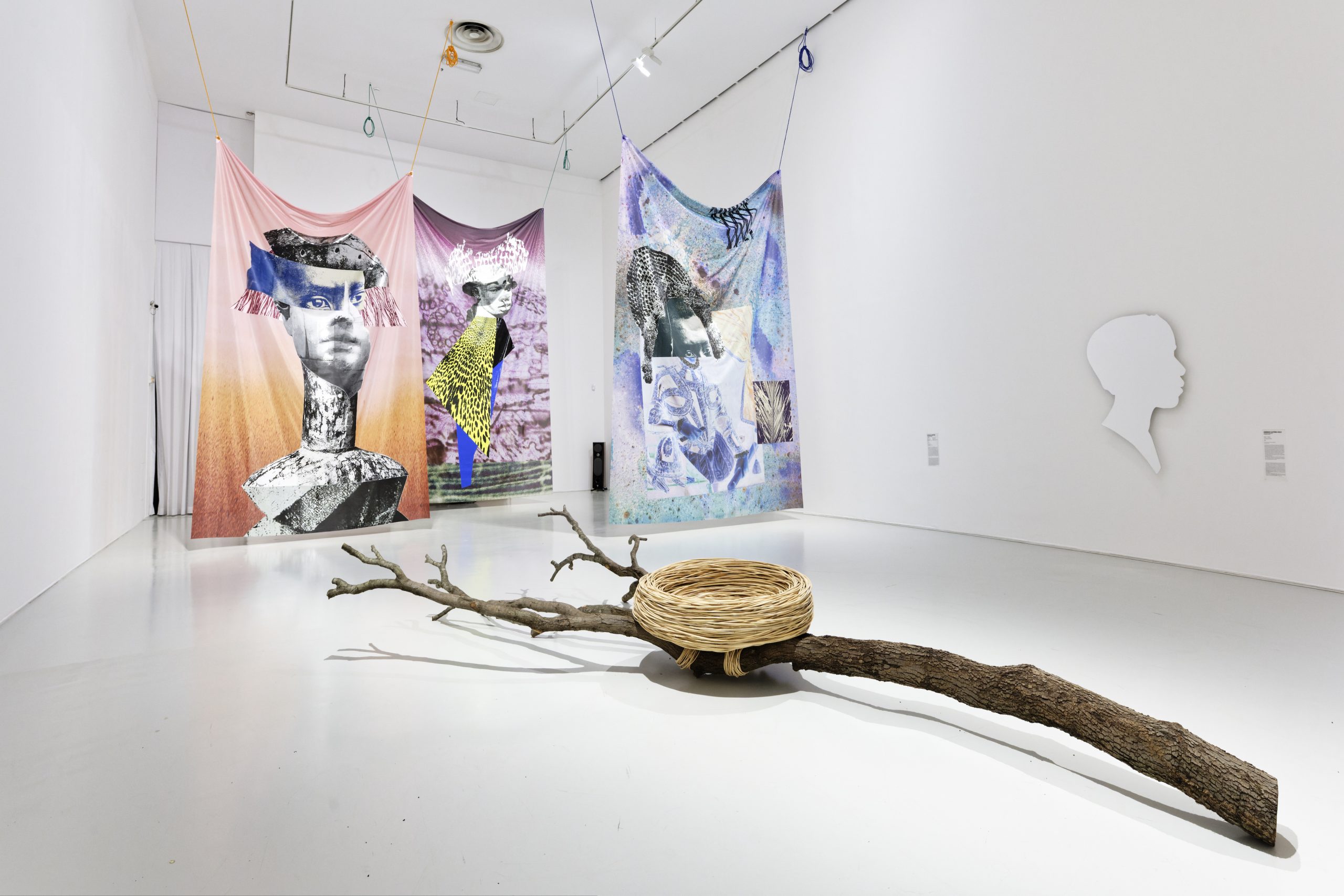
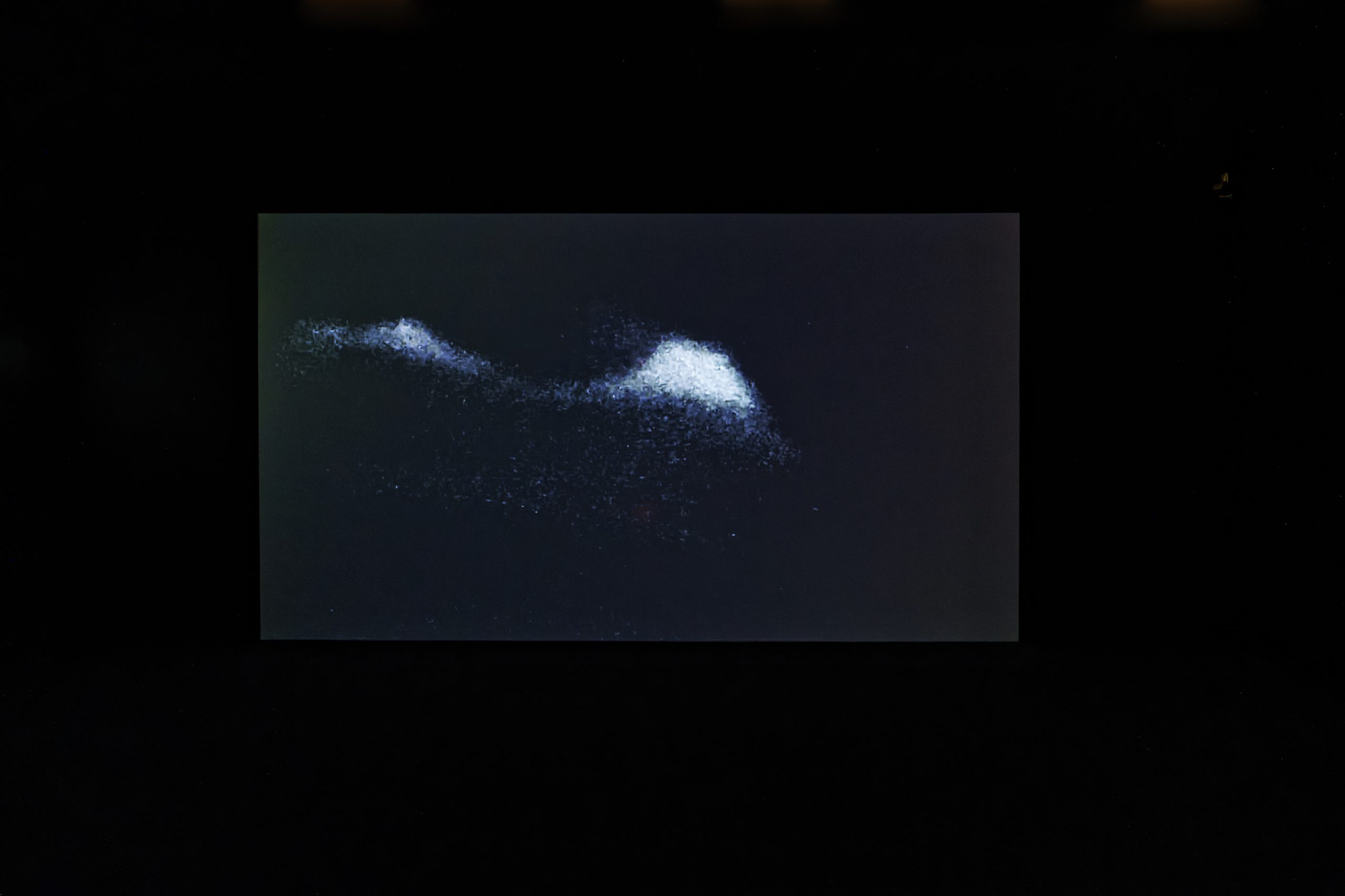
A lecture program, ‘Art in the Age of Globalisation and Post-colonialism’, accompanying the summer show, will be held on September 26, 2022. It invites the public to think with Fabrice Flahutez, filmmaker, curator and professor of art history at the University of Saint-Étienne, on the ideas expressed in the show. There will be a rereading of the artistic, cultural and philosophical issues at stake in the light of the phenomena of globalisation and decolonisation that have crossed all continents.
Read more about ‘Globalisto: A Philosophy in Flux’ on the MAMC+ website.
The artists featured in the show are Jamika Ajalon, Sammy Baloji, Raphaël Barontini, Marie Aimée Fattouche, Sam Gilliam, Porky Hefer, Lubaina Himid, Arthur Jafa, Euridice Zaituna Kala, Samson Kambalu, Moshekwa Langa, Elsa M’Bala, Myriam Mihindou, Wilfried Nakeu, Otobong Nkanga, Josèfa Ntjam, Sara Sadik, Dread Scott and Gerard Sekoto.
1 Horace Campbell, “Pan African Renewal in The 21st Century,” African Journal of Political Science / Revue Africaine de Science Politique 1, no. 1 (1996): 84–98. http://www.jstor.org/stable/23489746.
–
Written by Bukola Oyebode, the Lead Editor at TSA Art Magazine.


